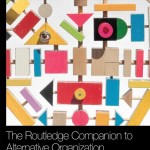Martin Parker, Professor and Culture and Organisation at the School, underlines the apparent paradox of the popularity of anti-corporate sentiment within contemporary culture. The tie-in merchandising costs HOW much?! julochka President Business is a bad guy. We know that because he is the chief executive of the Octan Corporation. He also has bad hair, control issues, […]
School of Business Blog
The Nature and Purpose of the Corporation – A Round table Discussion
The School’s Centre for Philosophy and Political Economy (CPPE) celebrated its 10 year anniversary towards the end of last year by hosting a 3 day conference. One of the highlights of the events was a round table discussion on the Nature and Purpose of the Corporation, a video-recording of which is available to watch here. […]
What can Critics of Management and Critics of Economics learn from each other?
Neil Lancastle, one of the School’s current PhD students, brings his experience of curricular reform in economics to bear upon the promises (and problems) of being “critical” in a School of Management. Early in my PhD studies I was fortunate enough to read the sort of economic work which can now rightly claim to have […]
The Rise of Sustainability Reporting
Michelle Spiteri-Bailey, PhD Student and recent award winning essayist at the School, insists that the rise in Business Ethics and Stakeholder Theory will make accountancy more interesting but also more challenging. Traditionally, the ‘stakeholders’ of a corporation included investors, employees, customers, and suppliers. Nowadays, however, the term ‘stakeholders’ embraces a much wider circle of interested […]
A Price worth Paying? Short Term Economic Recovery and the Loss of a Generation
Melanie Simms, Professor of Work and Employment at the School, highlights the under-reported blind-spot in the over-reported fact of an emergent economic recovery: today’s youth are unlikely to be experiencing it. It is roughly a decade since researchers and policy makers began raising serious concerns about the approximately one million young people who are Not […]
What Business Schools could learn from My Local Bakery

Professor Martin Parker, Director of Research at the School, challenges the arguments underpinning mainstream accounts of Business and Management within his recently published co-edited collection. Powerful people often tell us that economic life provides us with no alternatives. Bankers must be paid sickening amounts, workers’ wages must be kept down, small organizations can’t compete, and […]
Gibraltar’s Economic Problems and the UK’s Role in Solving Them
Dr. Chris Grocott, Lecturer in Management and Economic History at the School, demonstrates how the recent political disputes between the UK, Spain and the people of Gibraltar are connected to on-going economic tensions which both unite and divide them In late November, a Spanish ocean survey vessel entered Gibraltar territorial waters and navigated […]
Management Education as a Defence against the Dark (Commercial) Arts
Nigel Krishna Iyer, Independent Fraud and Corruption Investigator and Teaching Fellow at the School, discusses the rationale underpinning the new CPD course Defence against Fraud and Corruption. As a fraud and corruption investigator I’ve travelled the world, delving into murky financial corners, interviewing informants and whistle blowers, confronting criminals, and even sifting through offices and trash […]
Increasing the Retirement Age won’t solve the Pensions Crisis
Jo Grady, Lecturer in Human Resource Management and Industrial Relations at the School, responds to George Osbourne’s Autumn Statement, particularly on its proposal to increase the retirement age to 70. Speaking on LBC 97.3 today (December 5th, 2013), in defence of the coalition government’s decision to increase the retirement age to 70, Deputy Prime Minister […]
The Marketplace of Life? The Political-Economy of Emergent Water Markets
The frog does not drink up the pond in which he lives (American Indian Saying) In 1776 Adam Smith introduced the paradox of value: diamonds are much more expensive than water, even though water is essential to human survival. Smith’s paradox, at that time, appealed to his contemporaries as little other than a […]


Recent Comments